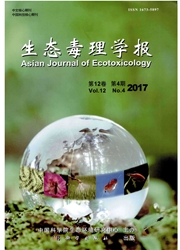

 中文摘要:
中文摘要:
胰岛素抵抗综合症目前在全世界以惊人的速度增长,成为21世纪公共健康的严重挑战。多例流行病学调查结果已经显示持久性有机污染物与胰岛素抵抗的关联。胰岛素信号传递受损是胰岛素抵抗的本质原因。考察机制发现,可在机体脂肪组织中贮存积累的持久性有机污染物,如二嗯英、多氯联苯、溴代阻燃剂、有机氯农药等,可干扰细胞内受体如环芳烃受体、过氧化物酶体增殖物激活受体、导致氧化损伤、线粒体功能障碍并通过慢性炎症介质TNFet的释放及其相关信号调控;进而可能阻扰胰岛素信号传递中关键蛋白InsR或IRS-1/2正常磷酸化,导致胰岛素抵抗。
 英文摘要:
英文摘要:
The incidence of insulin reisistance syndrome has increased at a globally alarming rate, being a seri- ous challenge to public health in 21th century. Large scale epidemiological survey has indicated the relation- ship of persistent organic pollutants (POPs) and insulin resistance. Impaired insulin signaling is a common cause of insulin resistance in essential. Investigation has indicated that POPs, such as TCDD (2,3,7,8-tetra- chlorodibenzo-p-dioxin), PCBs (polychlorinated biphenyls ), PBDEs (polybrominated diphenyl ethers ) and OCPs (organochlorine pesticides), accumulated and stored in adipose tissue, could interfere cell signaling of AhR or PPARs receptor, induce oxidative damage and mitochondrial dysfunction, promote TNFa secrection and its related inflammatory cell signaling. After the interference of cellular signal transduction, POPs probably disrupt the normal phosphoration of insulin receptor (InsR) or insulin receptor substrate-1/2 (IRS-1/2) resulting in insulin resistance induction, which may orovide the potential mechanisms of diabetes etiology.
 同期刊论文项目
同期刊论文项目
 同项目期刊论文
同项目期刊论文
 Augmented atherogenesis in apoE-null mice co-exposed to polychlorinated biphenyls and 2,3,7,8-tetrac
Augmented atherogenesis in apoE-null mice co-exposed to polychlorinated biphenyls and 2,3,7,8-tetrac Reduction and immobilization of chromate in chromite ore processing residue with nanoscale zero-vale
Reduction and immobilization of chromate in chromite ore processing residue with nanoscale zero-vale Development of indirect competitive fluorescence immunoassay for 2,2 ';,4,4 ';-tetrabromodiphenyl et
Development of indirect competitive fluorescence immunoassay for 2,2 ';,4,4 ';-tetrabromodiphenyl et Impaired gas bladder inflation in zebrafish exposed to a novel heterocyclic brominated flame retarda
Impaired gas bladder inflation in zebrafish exposed to a novel heterocyclic brominated flame retarda Levels and sources of brominated flame retardants in human hair from urban, e-waste, and rural areas
Levels and sources of brominated flame retardants in human hair from urban, e-waste, and rural areas Dechlorane Plus flame retardant in kingfishers (Alcedo atthis) from an electronic waste recycling si
Dechlorane Plus flame retardant in kingfishers (Alcedo atthis) from an electronic waste recycling si Tetrabromobisphenol-A and Hexabromocyclododecane in Birds from an E-Waste Region in South China: Inf
Tetrabromobisphenol-A and Hexabromocyclododecane in Birds from an E-Waste Region in South China: Inf Heavy Metals in Hair of Residents in an E-Waste Recycling Area, South China: Contents and Assessment
Heavy Metals in Hair of Residents in an E-Waste Recycling Area, South China: Contents and Assessment Gastrointestinal absorption, metabolic debromination, and hydroxylation of three commercial polybrom
Gastrointestinal absorption, metabolic debromination, and hydroxylation of three commercial polybrom Capillary Monolithic Bioreactor of Immobilized Snake Venom Phosphodiesterase for Mass Spectrometry B
Capillary Monolithic Bioreactor of Immobilized Snake Venom Phosphodiesterase for Mass Spectrometry B Dechlorane Plus in serum from e-waste recycling workers: Influence of gender and potential isomer-sp
Dechlorane Plus in serum from e-waste recycling workers: Influence of gender and potential isomer-sp 期刊信息
期刊信息
